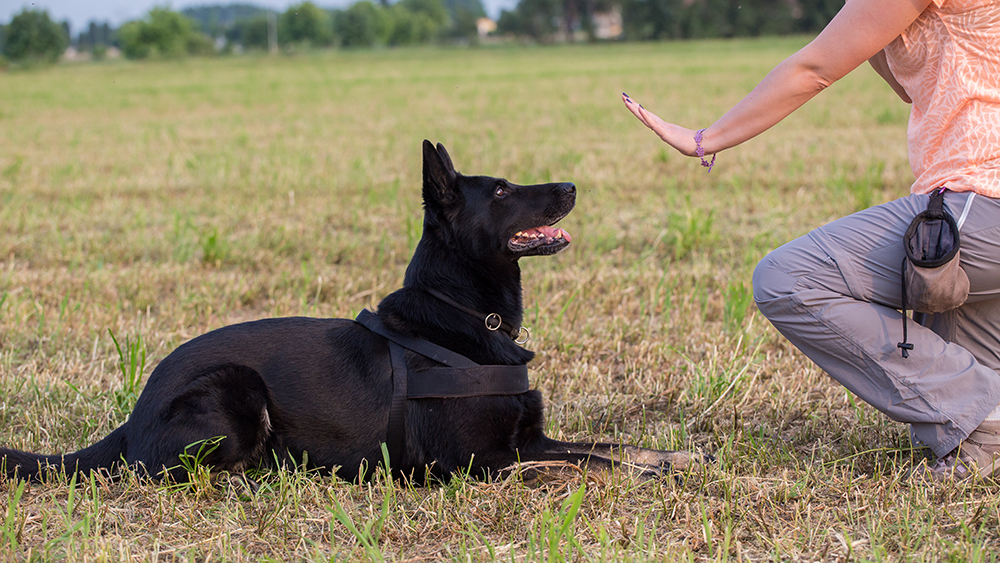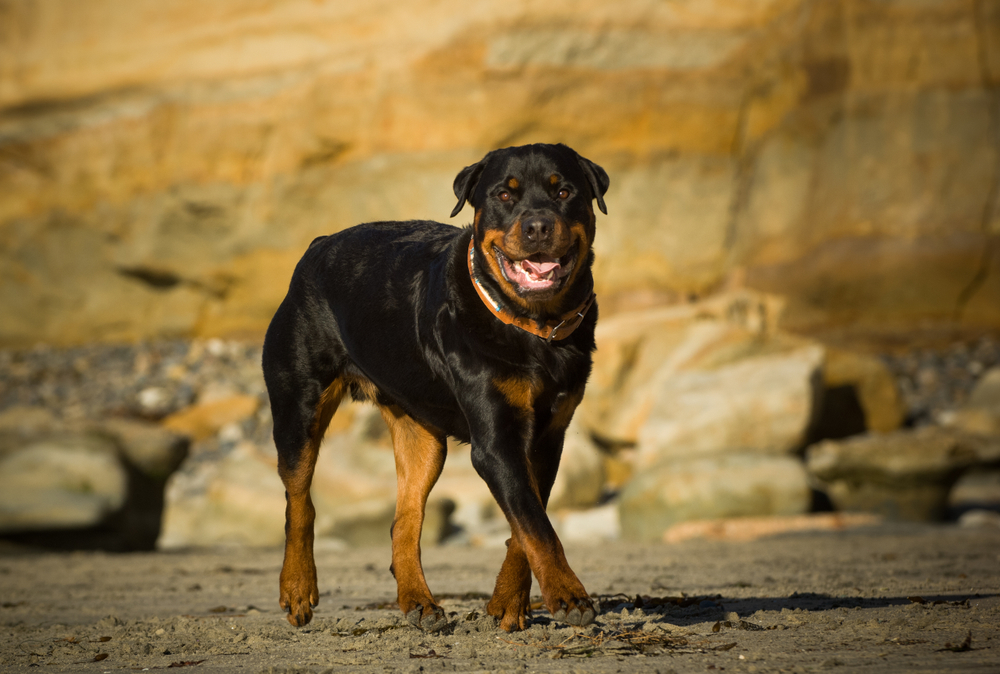Click Below to Skip Ahead
The Braque du Bourbonnais is the quintessential hunting companion, with a history that goes back hundreds of years. The dog embodies the functional role dogs initially served for humans during domestication. This breed has many desirable traits that help these animals excel in this work. While it’s an ancient breed, the Braque du Bourbonnais didn’t make it across the pond until 1988. Let’s learn a bit more down below.
Breed Overview
Height:
19 – 22.5 inches
Weight:
35 – 53 pounds
Lifespan:
10 – 12 years
Colors:
Chestnut, fawn, brown, white
Suitable for:
Experienced dog owners who understand the unique needs of a sporting dog
Temperament:
Loyal, intelligent, friendly, adaptable, even-tempered
The Federation Cynologique Internationale (FCI) and stateside United Kennel Club (UKC) recognized the breed in 2006. The American Kennel Club (AKC) has put it in its Foundation Stock Service (FSS) in the Sporting Group. This designation is part of the organization’s formal recognition process. Fortunately, the Braque du Bourbonnais has a loyal following to ensure it happens.
The Braque du Bourbonnais is an easy dog to fall in love with. They are loyal and affectionate pets. They are hard-working and persistent in the field, making them an excellent choice for individuals who want an all-around hunting companion. While their name refers to the dog’s pointing abilities, they can also retrieve and track a scent. After all, that was this dog’s first job that drove early selective breeding.
Braque du Bourbonnais Characteristics
Braque du Bourbonnais Puppies
Finding a Braque du Bourbonnais puppy is challenging, although the breed has a loyal following. We suggest beginning your search with the Braque du Bourbonnais Club of America.1 Remember that it is still trying to get AKC recognition, which includes three-generation pedigrees in its studbook. That ensures consistency in the dogs’ conformation. You can contact them to find a reputable seller.
The chances are that breeders will offer pet-quality puppies for sale and keep the representative dogs for the development of the breed. We can’t speculate on the price. However, we recommend only buying from a seller who conducts pre-breeding health screenings on their stock.
The price of a puppy only scratches the surface of what owning a pet costs. After all, it’s a financial commitment that comes with responsibility to the animal’s health and welfare. A Synchrony study estimated the average annual expenses between $1,270 to $2,803.2 Of course, many variables exist that can affect what you must pay. However, you shouldn’t skimp on nutrition or veterinary care.
The study also found that one-third of pet owners will face a significant but unexpected pet-related expense. It could be anything, from an accident to gastrointestinal obstruction to cancer. Therefore, we suggest researching pet insurance to offset some costs. It’s worth noting they are primarily reimbursement plans, but some companies offer affordable add-ons for wellness care and prevention.
Braque du Bourbonnais Breed Origin & History
The history of the Braque du Bourbonnais goes back hundreds of years. The breed’s name offers proof. The animal’s name means “pointer of Bourbonnais.” Bourbonnais was a historical region in central France that no longer exists but was created in the 10th century. This time period saw the development of many isolated breeds tied to specific areas. The Braque du Bourbonnais is one example.
French hunters embraced the breed. Things in the canine world began to change about 160 years ago when humans started selectively breeding dogs for conformation and appearance. Remember that this pup had been a hunting companion historically. Switching the focus undoubtedly caused some riffs with enthusiasts. Two world wars didn’t help, and the extinction of the breed loomed.
Fortunately, enthusiasts took up the cause to resurrect the Braque du Bourbonnais and bring the dogs back to their former glory in the late 1970s. Their efforts paid off with the formal recognition the breed has since received. Perhaps this history has fueled their mission to get this honor from the AKC and ensure the breed’s continued survival.

Temperament & Intelligence of the Braque du Bourbonnais
Every dog has their unique qualities, and the Braque du Bourbonnais is no exception. The consistency of the breed’s use is a significant factor in the pup’s temperament and intelligence because of the demands it imposes on the animal. You’ll find many common denominators between this pooch and other gun dogs. Remember that they are characteristics that opened the door to a closer relationship with our pets.
Hunting animals must have keen problem-solving skills. They must be alert and intelligent to make good choices. The Braque du Bourbonnais has this skill set, encouraged through selective breeding.
Are These Dogs Good for Families?🐶🐱
The Braque du Bourbonnais is an affectionate pet with their family members. They are also somewhat protective of their humans and wary of strangers. That’s not unusual when you consider the close bonds these dogs would form with their owners. This dog is good with kids, but they might overwhelm them during play. Also, they are high-energy animals because of their jobs, so we suggest supervising playtime.
The Braque du Bourbonnais can be playful, but these dogs are working and sporting animals. While they have a moderate tendency for nippiness, they aren’t big barkers. They save their vocalizing to alert their owners. Being yappy goes against being a decent hunting companion.
Does This Breed Get Along With Other Pets?
We don’t recommend the Braque du Bourbonnais in households with other pets. They may tolerate other dogs since they would encounter them in the field. However, they also have a keen prey drive because they have been raised to track game. That can include the family cat if the animal runs away from them, as instinct will likely take over during the chase.

Things to Know When Owning a Braque du Bourbonnais:
The Braque du Bourbonnais is an ancient breed that has had modern-day influences on its development. Instinct plays a significant role in the animal’s temperament and personality. Their high activity level makes them unsuitable for apartment dwellers. This dog needs to run and expend their abundant energy. They aren’t very adaptable since their history hasn’t typically embraced these traits as being necessary.
The Braque du Bourbonnais needs attention, which isn’t unusual for a hunting companion. After all, they bond with their owners and expect to be around them, even if they aren’t in the field. We don’t recommend this breed for individuals who can’t spend time with their pets. The other trait to consider is their sensitivity, as this pup is eager to please and won’t respond well to harsh words.
Food & Diet Requirements🦴
The Braque du Bourbonnais is a medium-sized breed comparable to an Australian Shepherd. Your pet needs a diet formulated for their life stage and size. You should feed a puppy three to four times daily. That’ll ensure a steady and stable supply of energy to fuel their activity and development. Growth requires much nutritional support during this demanding time.
Your Braque du Bourbonnais puppy must get a minimum of 22.5% protein and 8.5% fat by dry weight. You’ll find this info on the product’s label in the guaranteed analysis. This breed isn’t prone to weight gain since pups are actively burning off fuel. Nevertheless, we recommend monitoring your pet’s body condition. Remember that the feeding instructions are only a guide.
You should transition your pet to an adult diet and a twice-daily feeding schedule when they reach sexual maturity. Make sure your dog always has fresh water available. We also recommend reserving treats as training aids to get the most out of them. They should only make up 10% of your pooch’s total caloric intake.

Exercise🐕
Exercise is imperative for a Braque du Bourbonnais. This dog needs and wants to run! Daily walks are excellent opportunities to fulfill this need and offer chances to meet new human and canine friends. They will also provide welcome mental stimulation by introducing your dog to novel experiences. That can prevent fearfulness in your pet later in life.
Training🎾
The Braque du Bourbonnais is intelligent and eager to please. Nonetheless, they need an experienced owner who understands their needs and temperament. Hunting dogs are often independent animals and must be reined in occasionally without punishment or harsh words. These dogs respond best to positive reinforcement that encourages desirable traits and behavior.
Grooming✂️
The Braque du Bourbonnais has a smooth, short coat that requires minimal grooming. Bathing with a high-quality shampoo should only be needed every few months unless they are is prone to getting dirty outside. A weekly session with a curry brush or hound glove will keep your pet looking their best.
We recommend cleaning their ears and trimming their nails regularly, this is also a good time for your Braque du Bourbonnais to get used to being handled. It will build trust and make vet exams more manageable.

Health and Conditions🏥
The Braque du Bourbonnais is a healthy dog, which isn’t surprising given the breed’s rarity. That doesn’t encourage inbreeding or overbreeding, which can safeguard the animal’s health and genetic diversity. We recommend only buying from breeders who conduct testing for common conditions in dogs of their size, including joint issues.
Many hereditary and congenital conditions develop later in a dog’s life. The breed isn’t part of the Orthopedic Foundation for Animals Canine Health Information Center (CHIC) program. That means a specific list of recommended tests and DNA screening doesn’t exist. However, you can protect your purchase by buying from individuals who offer a health guarantee for peace of mind.
- Skin conditions
- Hip and elbow dysplasia
- Patellar luxation
Male vs. Female
Male and female Braque du Bourbonnais are similarly sized, although the latter is less stocky. Personality differences largely depend on upbringing and the environment. Research suggests that females may have the edge of sociability.
3 Little-Known Facts About the Braque du Bourbonnais
1. The Braque du Bourbonnais Captured the Interest of Artists
An illustration from the late 1500s by Italian naturalist Ulisse Aldrovandi depicts the dog in action, doing what they love. The work is titled Canis sagax ad coturnices capiendas pantherinus, which means “keen scented (spotted) dog for catching quail.” It provides early evidence of this dog’s history and the love enthusiasts have for the breed.
2. The Braque du Bourbonnais Are the Most Popular Breed of Its Type
Other French Braque types exist in different parts of France. The Braque du Bourbonnais is the most popular, thanks to the enthusiasm of their fans.
3. The Braque du Bourbonnais Is an Ancient Breed
This dog has been around for quite some time. In fact, they are even mentioned in French literature as early as the late 1500s.
Does the Braque du Bourbonnais Make a Good Pet?
The Braque du Bourbonnais makes an excellent pet for the right family. They are best suited to households that can give them enough attention and space to thrive. These dogs need a job and exercise. They aren’t a good choice in homes with other pets. This pooch is a hunter with a keen prey drive to match. However, they can get along with other dogs with proper socialization.
Conclusion
The Braque du Bourbonnais is a fascinating dog with an equally interesting history. It is the consummate hunting companion with centuries of selective breeding. Surprisingly, neglecting this fact almost led to the breed’s extinction. This pooch wants to work and has the temperament to support this role. Prospective owners must keep this information in mind if they’re considering this breed.
Featured Image Credit: Wirestock Creators, Shutterstock















